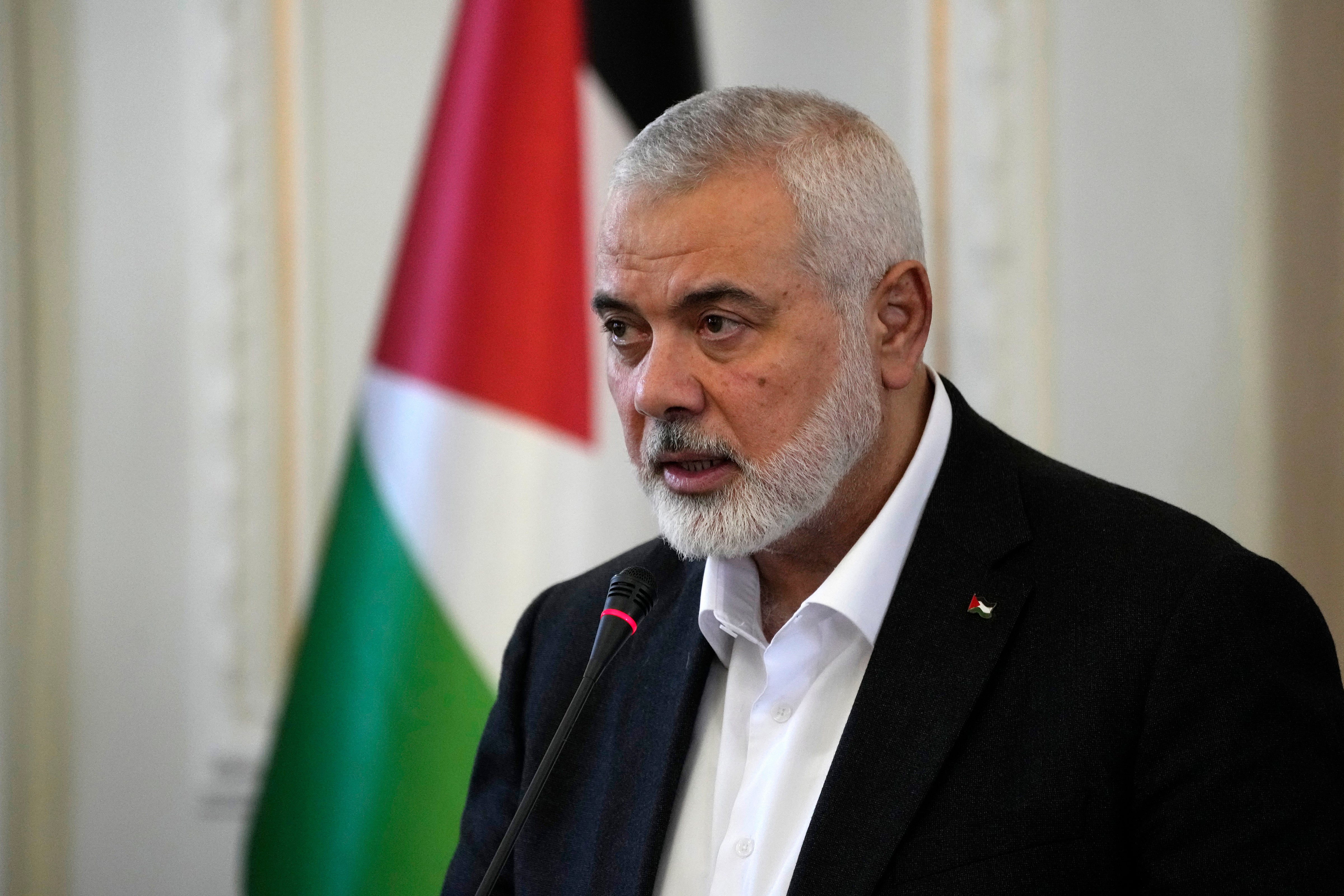Israel’s Hamas assassinations could all too easily lead to armageddon
Benjamin Netanyahu has long warned that he would attack Iran to prevent it from getting an atomic weapon. But the killing of a Hamas leader in Tehran might now spur his enemy to make the bomb as quickly as possible, says Mark Almond


At first sight, Israel’s ability to strike a deadly blow at its key Palestinian enemy, in the heart of the Iranian capital, in the middle of the night, is evidence of its mastery of the modern battlefield. As with its targeting of Fuad Shukr, Hezbollah’s veteran military commander, in Beirut a few hours earlier, the assassination of Hamas leader Ismail Haniyeh in Tehran showed that, for Israel’s foes, there is no hiding place.
Yet Israel’s own long record of finding and killing organisers of anti-Israeli violence suggests that assassination is a dead end if it is meant to stifle terrorist groups and insurgents with a popular base.
Making a martyr of Haniyeh will no doubt be satisfying for many Israelis who see him as the architect of the rampage on 7 October, which cost so many Israeli lives and led to hostages being taken into Gaza.
But this martyrdom may give an authority to his intransigent cause. So long as Haniyeh lived safely in Qatar, away from the carnage he had provoked in Gaza, Israel could argue that the Hamas leader was indifferent to the human cost of his strategy. Now that he is dead, it is more difficult to say to ordinary Gazans: “Why fight for a man who lives the life of a billionaire in Doha while you starve and bleed?”
Assassinating the Hamas leader might disrupt the organisation for a while, but Haniyeh himself belonged to the group that came to the top of Hamas after Israel blew up its founder, Sheikh Ahmed Yassin, in March 2004.
Even if Hamas in Gaza was in its death throes before the Israeli strike on Haniyeh – quite an “if”, in fact – the signs were of a spreading war with Hezbollah in Lebanon, with Shiite militias operating from Iraq and the Houthis striking at shipping in the Red Sea and Israel’s port at Eilat. It may soon be seen that the Gaza conflict was just phase one of a growing conflict in the Middle East.
Some Israelis have suggested that by getting rid of the Hamas leader, Benjamin Netanyahu may have regained sufficient political authority lost by the security lapses on 7 October to make a ceasefire deal – but this overlooks that it takes two to make peace. Not only will Hamas now face demands for revenge, but Iran, Hezbollah and the other pro-Iranian groups in Iraq and Yemen’s Houthis will pile in, too. Even Qatar has announced that its mediation role was killed by Haniyeh’s assassination.
Netanyahu has never wanted a two-state solution with the Palestinians, and it is now impossible to see how either Israel or the Palestinians could find a compromise; trust between them died long before 7 October. We shouldn’t forget that the many Israelis who revile Netanyahu do so because they see him as corrupt and self-serving, but also as a failure to guarantee their security from Palestinian attacks. There is no peacenik movement in Israel any more.
Netanyahu has long warned that Israel would attack Iran itself to stop it from getting an atomic weapon. Tehran’s humiliation by Israel might push it to make the bomb as quickly as possible. That raises the threat of armageddon in the Middle East.
Lloyd Austin, the US defence secretary, has warned that America would act to defend Israel against a repeat of the Iranian missile and drone attack in April. That could add Americans to Israelis as targets for revenge attacks by Iran and her proxies like Hezbollah, and in Iraq and Syria, with their US bases.
Iran has lost face. Israel and America won’t want to back down in the face of calls for revenge. This is a recipe for a spiral of violence.
Mark Almond is director of the Crisis Research Institute, Oxford



Join our commenting forum
Join thought-provoking conversations, follow other Independent readers and see their replies
Comments